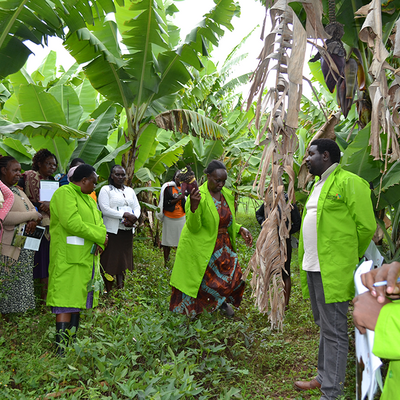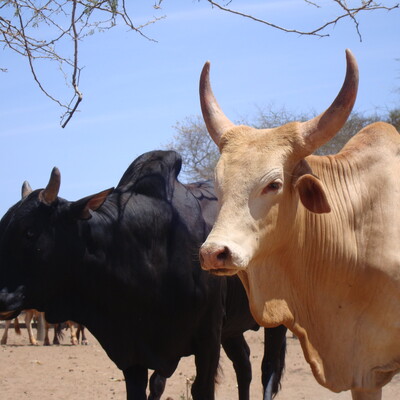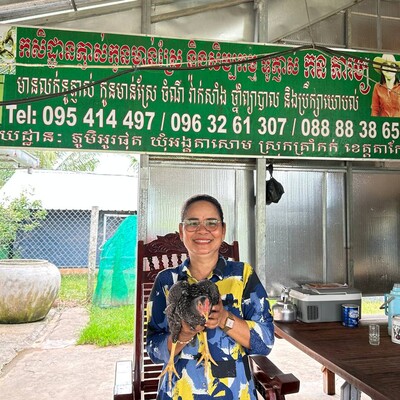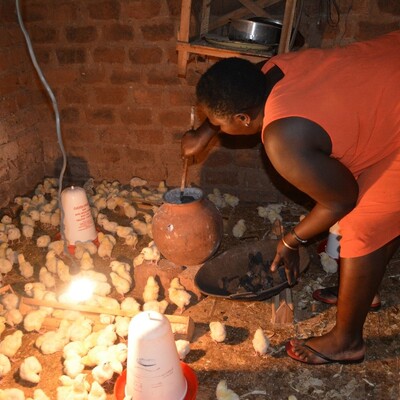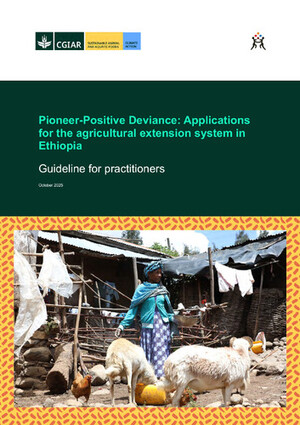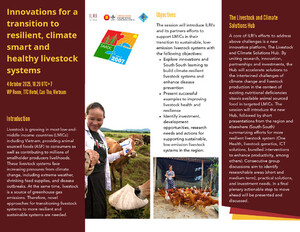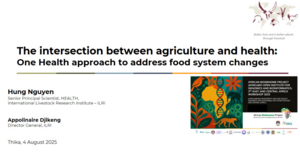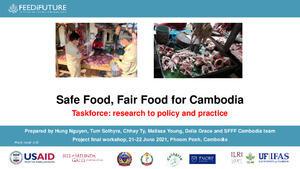
Boosting Uganda’s investments in livestock development – healthy animals for healthy food and healthy people

Field visits to Kiruhura District, Uganda [photo credit: ILRI/Sonja Leitner]
Today, policymakers, researchers and academics, donors, civil society, as well as government and private sector representatives from Uganda, Kenya and Germany meet to boost investment in Uganda’s livestock.
Around 70% of all Ugandan households keep some livestock – cattle, pigs, sheep, goats or poultry; mostly selling it to local markets. The lives of these animals are threatened by a host of pathogens and animal losses by disease threaten the livelihoods of their owners and keepers. Some of these diseases are transmitted from animals to humans (zoonotic diseases), threatening also the health of producers as well as people who handle and consume animal source foods. Keeping animals healthy through accurate disease prediction, prevention and treatment and keeping foods safe during handling and processing leads to more productive animals as well as healthier diets and improved livelihoods for people.
Achieving these goals – healthier animals as well as healthier people – is the aim of the #BuildUganda program that is ‘boosting Uganda’s investments in livestock development’.
Launched today on behalf of Honorable Joy Kabatsi, Minister of State for Animal Industry in the Uganda Ministry of Agriculture, Animal Industry and Fisheries (MAAIF), Rose Ademun, Commissioner of Animal Production (MAAIF), #BuildUganda is a research for development collaboration to prevent and tackle animal diseases and zoonoses in Uganda. Led by MAAIF, and the International Livestock Research Institute (ILRI), it mobilizes national and international research and development partners from Uganda, Kenya and Germany. The five-year program is being funded by the German Federal Ministry of Economic Cooperation and Development (BMZ) and the CGIAR Research Programs on Livestock and on Agriculture for Nutrition and Health (A4NH).
Dieter Schillinger, Deputy Director General Research and Development for Biosciences said “I am very pleased that the German government through BMZ is supporting the Ugandan government to improve animal health strategies in the country. Uganda has been a focus country for the German ministry and is a model for trying to control disease outbreaks as well as improving the food safety, nutrition and trade within the region”.
The program focuses on four critical areas for Ugandan livestock development that are currently part of national action plans closely coordinated with international efforts led by the World Organization for Animal Health (OIE) and the Food and Agriculture Organization of the United Nations (FAO):
- Mitigating of antimicrobial resistance (AMR) risks in poultry (more information)
- Eradication of the sheep and goat plague – peste des petits ruminants (PPR)
- Control of Rift Valley fever (RVF) that affect people and animals
- Improvements to veterinary public health where animals are slaughtered, processed and sold
Kristina Roesel, the program coordinator for #BuildUganda said, “I am very pleased that we are able to align this program so closely with Uganda’s national livestock developmental agenda and help transform the lives and livelihoods of Ugandans through healthier animals and their products”.
Download more information on the project






